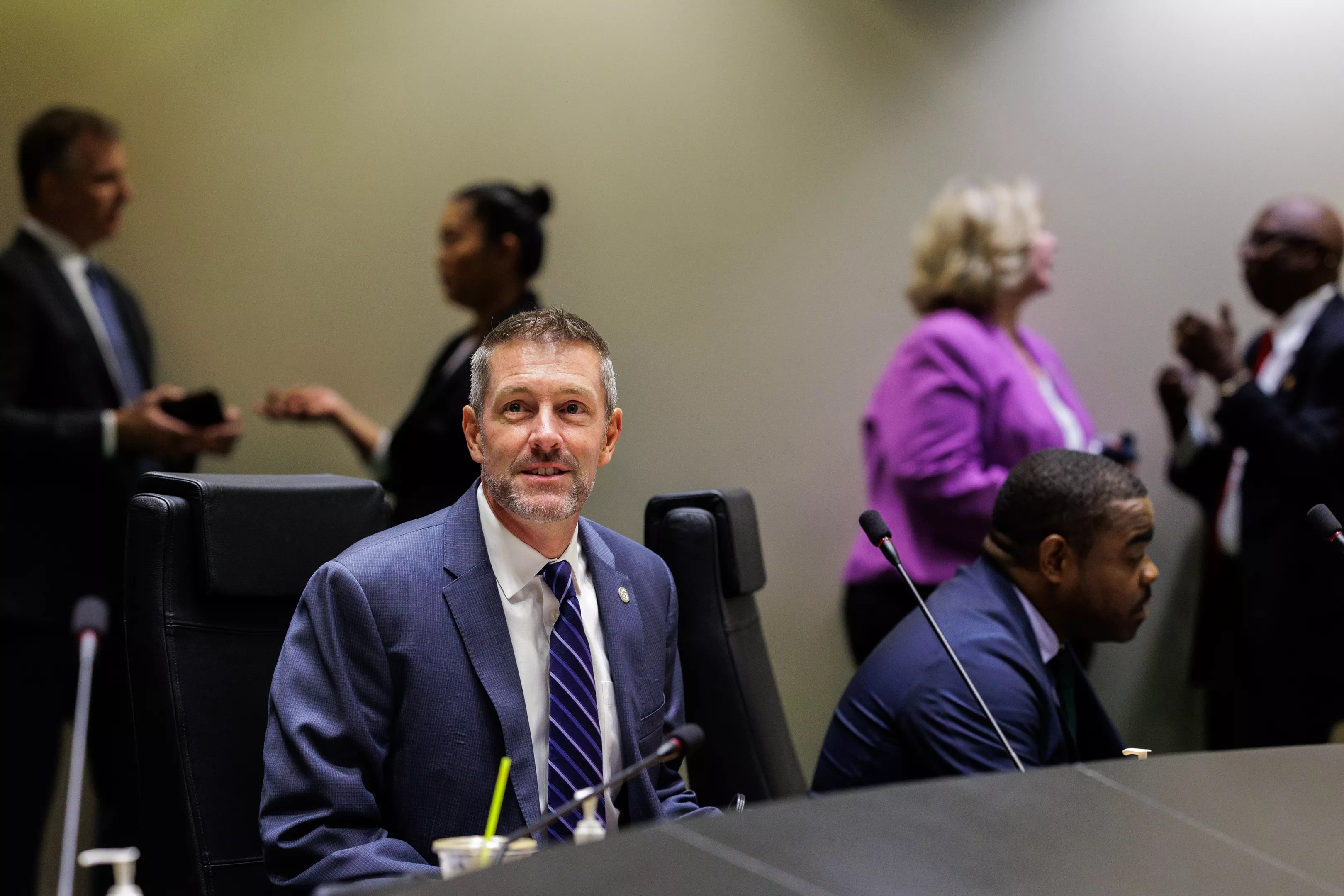
Nathan Hunsinger

Audio By Carbonatix
Editor’s Note, 12/15/2023, 9:44 a.m.: This story has been updated to include information that specifically details the elements under which gambling is legal in Texas.
After years of back-and-forth, Dallas is still eyeing a legal path forward for poker clubs.
The city granted a certificate of occupancy to its first legal poker room, Texas Card House, in 2019. The club operated without a hitch until 2021, when the city revoked its certificate even though nothing had changed about the business. It did the same thing to another local poker club called Shuffle 214. The clubs appealed to the city’s Board of Adjustment and got their certificates back. This led the city to sue its own Board of Adjustment, claiming it had abused its power when it restored the certificates.
District Judge Eric Moyé ruled in the city’s favor in November 2022, deciding that the board had abused its power. Texas Card House appealed, and the litigation is ongoing. Dallas has spent hundreds of thousands of dollars trying to resolve the matter.
When the City Council moved to approve more spending on the suit in late January, council member Chad West asked staff to look into a legal land use category for poker clubs in the city. City staff finally gave a brief update to the Government Performance and Financial Management Committee on Tuesday.
Bertram Vandenberg, interim chief of general counsel for the city attorney, said he didn’t want to get too deep into the substance of the potential change because of pending litigation, but he did offer some details. The attorney’s office and Planning & Urban Design Department are looking into a land use categorization for private game clubs beyond just poker.
“We’d rather be working together to find a solution than fighting it out with attorneys.” – Ryan Crow, Texas Card House
“A private game club means a private place that is only open to its members that primarily offers competitive gaming facilities including games of skill such as ax throwing, darts or shuffle board,” Vandenberg said. “Any games played with cards, dice, balls or any other gambling device as defined in the Texas Penal Code Chapter 47 are allowed only as a single accessory use.”
He said the definition of a private game club is what the Zoning Ordinance Advisory Committee (ZOAC) will start with when considering how to proceed with the proposed land use. West asked if implementing the new land use would eliminate the litigation. Vandenberg said he didn’t want to answer the question because of the lawsuit.
Council member Cara Mendelsohn asked if ZOAC could consider allowing the clubs only in the city’s Central Business District. Vandenberg replied that the location of these clubs is something ZOAC will be looking into.
How did the poker clubs get here in the first place if they need a special land use to operate? In 2019, the city’s legal minds had a different interpretation of the state’s gambling laws.
An exception for gambling was carved out in state law that some say makes poker clubs legal. According to that viewpoint, such clubs are legal as long as the game is being played in a private place, every player has an equal chance of winning and no one benefits economically besides from their personal winnings. The local clubs were considered private places because they charged a membership fee to players.
Things changed in 2021 when Senior Assistant Attorney Gary Powell offered a different interpretation of the law. He claimed that this gambling exception was never meant to apply to businesses. Instead, he said, it was meant to apply to private games at people’s homes. This new interpretation prompted the city to take away the clubs’ certificates of occupancy.
Andrea Gilles, interim director of the Planning & Urban Design Department, said the proposed new land use could be brought to the ZOAC by January or February.
Texas Card House CEO Ryan Crow said he and the club’s attorneys have had some conversations with City Council members about what a path forward could look like for poker clubs, but he’s not sure what the city will settle on. He said the update on Tuesday is the most he’s heard about the proposed legal land use since city staff started working on it in late January. “We’ve just been nudging them to do something so that we can end the legal part of it because it’s just incredibly expensive,” Crow said. “We’d rather be working together to find a solution than fighting it out with attorneys.”
He thinks there’s an internal disagreement between City Council members and the city attorney’s office about how to move forward. “The city attorney, I think they want to fight this out in the courts. They want the legal part of it. I don’t know that the City Council wants that,” Crow said. “I’m reading the tea leaves here. I don’t know this for sure, but it sounds like some people want to fight it legally and some people want to come up with a solution outside of it. … I feel like there’s two different messages coming from those groups.”
He said he understands council members’ concerns about the location of the clubs. “As long as there’s some guidance that’s reasonable and doesn’t cost us a million dollars to move locations, I think we’d be pretty happy with just something that everyone can be happy with,” Crow said. “My hope is that they present something tenable for us and that we can find a resolution.”